By John Y. Brown III, on Sun Apr 20, 2014 at 12:00 PM ET Sunday morning worship is for humans trying to do better not for people trying to pretend they aren’t flawed.
Great Sunday school class this morning: Biblical, spiritual, practical and relevant.
Left me feeling connected to my faith a little stronger than when I arrived this morning –and with a slightly larger calling for the week ahead.
And even gave me the spiritual strength to try to forgive that asshole I wasn’t going to forgive until next week.
And maybe even apologize myself to people who were planning to wait until next week to forgive me.
By John Y. Brown III, on Wed Mar 19, 2014 at 12:00 PM ET A good friend with an exciting opportunity for a career change recently messaged me about the fear of making such a big change.
I shared a Zen parable I heard years ago that I think exemplifies shrewdly the fear of “letting go” of something we know for something new and scary.
I can’t recall the specifics of the story but this is my very paraphrased version.
“A monk was being chased by a lion and to save himself had to jump of a cliff in the dark of night where he grabbed a thin limb growing on the side of the cliff. The monk, dangling for his life in the pitch black dark, waited for the sun to come up before his strength gave way and, he feared, falling to his death.
But the sunrise didnt come soon enough and the monk’s arms, exhausted and numb, gave way slipping off the branch.
And the monk fell 6 inches to the ground below.
About that is often about as far we have to fall when making a compelling life change.
Something to think about…when you feel like letting go.
===
 Thought for the day Thought for the day
Each day try to learn one thing that will enhance your life
And….more importantly
Try to unlearn one old thing that is diminishing your life
By RP Nation, on Fri Mar 7, 2014 at 10:00 AM ET Editor’s Note: Last summer, 13 year old Ethan Kadish was struck by lightning at Goldman Union Camp Institute in Zionsville, IN — the camp at which my wife and I met, as well as where my parents met. Here’s the story of the horrible event. Ethan’s camp buddies, Nathan and Asher Moskowitz are celebrating their Bar Mitzvah this weekend by making a tribute to their friend and raising money for his health care. Here are their stories:
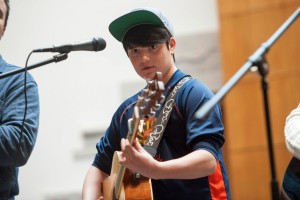 Nathan Moskowitz: Nathan Moskowitz:
Sometimes in life we don’t stop and think about what we are thankful for. With the sacrifice of well being our ancestors were forced to take a moment, appreciate their blessings and give thanks.
In my Torah portion, the Israelites made a special offering called the sacrifice of well being. They slaughtered the animal, and then splashed the blood of the animal all over the walls of the altar. The kidney and the liver were then turned into smoke in front of the altar. Not the most pleasant – laws about sacrifice and blood. But for me, all this blood and smoke, is teaching us about how we give thanks.
For our ancestors, the forced sacrifice of well being made them appreciate the blessings they had. It was a way to stop and think about what was really happening and what they needed to be thankful for. Today, fortunately, we don’t make sacrifices. Instead, we have our prayers – and they are here to remind us of what is good in our lives. But also, what we can do more of. Just like the sacrifices, they help us think of what needs to be done in our world, like who might need our help.
For me, this entire bar mitzvah has made that happen. When I first thought of what my bar mitzvah meant to me, there were a few ideas that immediately popped into my head. Being a Jew, the importance of our Jewish tradition and that being up here tonight is part of our history. But there was one idea that had me thinking for a long time; that we have to work at making the world a better place and helping others. That’s the value that we have always learned as most important in being Jewish. And after what we experienced last summer, I knew we could live this Jewish principle for our b’nai mitzvah.
===
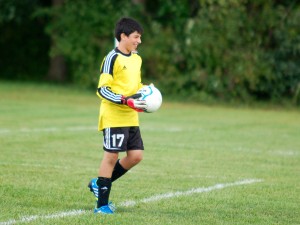 Asher Moskowitz: Asher Moskowitz:
My Torah portion talks about the sin offering, a sacrifice that had to be made when someone did something wrong. It says that if one person in the community commits a sin, the entire community is responsible and has to make a sacrifice. The sacrifice made was a bull and if they didn’t have a bull, the community used a goat. Our ancestors brought the bull before G-d and then slaughtered it in the Tent of Meeting. Then they burned the animal’s blood in the fire.
When I first read this, I found how they dealt with sins in ancient times really weird and gruesome. Besides, how does sacrificing a bull and sprinkling bull blood fix our mistakes?
I imagine that the Israelites were concerned about giving up something as valuable as a bull, so maybe that would stop them from committing a sin. That fear would make them behave better. Though in my mind, linking this to G-d, doesn’t make a lot of sense. I don’t think G-d cared about someone’s sacrificed animal that was killed to make up for a mistake made. I believe that all G-d wants us to do, is that which is good and that we should work on fixing our world.
Yet what would happen if we could fix our mistakes and take back the wrong we did in such a simple and practical way? When I was at a temple retreat, one of the counselors asked “have you ever squeezed toothpaste out of a tube and tried to put it back in?” Well the thing is, it’s impossible. Once we do something bad – once we hurt someone, once we call someone a name, we can’t take it back. Now some people might think you can always just say, “I’m sorry.” But for me that doesn’t cut it.
Words aren’t enough. Even though as Hannah Montana taught, “Nobody’s Perfect,” and “Everyone makes mistakes,” our actions need to show that we care enough to work at the wrong we did, that we can redeem ourselves and do something kind to help and to make things right.
This got me thinking. There are moments when mistakes are made and we wish we could go back in time and fix them. But that’s really true with everything we experience, everything we might want different. Think about all the things we would change! I wish we were able to do this because then I’d get my friend Ethan out of the way so that lightning wouldn’t strike him.
Of course, that’s not possible. But I wish it were. I guess the lesson is that when things happen, even bad things, we can’t change them. But we can work to make things better. And that actually is connected to my Torah portion.
Like I said before, the whole community is responsible for the sin that one person committed. Yet, why is the entire community connected to what went wrong when only one person had sinned. I think that is the most important lesson here, that community means everyone is responsible. When things are good, everyone can experience the good. When things aren’t good, everyone can try to make things better.
Today we are part of Ethan Kadish’s community. To help Ethan, Nathan and I are doing a 5k fun run walk so that we can raise money for Ethan’s medical care.
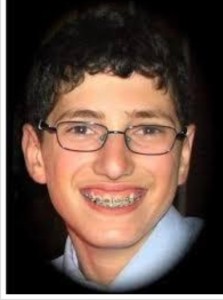 Ethan Becoming a bar mitzvah means I have the chance to be more of a leader – for my temple community leading us in prayer and also celebrating a tradition that has been passed along to me. The most meaningful part of this is connecting with my temple, my family and my friends and bringing everyone together. And that tomorrow we will be a community that works together to help our friend Ethan.
===
Nathan Moskowitz:
Our friendship with Ethan is ever lasting. We played Ultimate Frisbee together and we even had our own handshake after one of us scored. I hope and pray that one day we will be able to do our handshake again. The day he was struck by lightning, all of us at camp broke into tears. That night a new tradition began as we sang the prayer of healing, the Misheberach, together as a community. We continued doing this every day for the rest of the session, dedicating it to Ethan. It gave us time to think about how we wanted to help him. On the day we left camp, on the car ride home, I said, “we have to do something for Ethan.”
We’re blessed to be able to share Ethan’s story and ask everyone to make a difference in his life. It makes us feel good to know that our b’nai mitzvah is helping. And on some level, not only helping Ethan, but also reminding us how much helping there is to do in our community and in our world.
By Jonathan Miller, on Fri Jan 24, 2014 at 10:00 AM ET Last week, The Recovering Politician was proud to break the news that University of Louisville President Jim Ramsey and University of Kentucky President Eli Capilouto each joined the growing list of college and university leaders (192 and counting) who have denounced the American Studies Association’s pernicious academic boycott of Israel. (Read about it here.)
Here’s Ramsey’s statement; and here’s Capilouto’s statement.
Today, we are proud to share a letter written by Western Kentucky University President Gary Ransdell — to a proud WKU graduate studying in Israel — joining the anti-boycott chorus.
Thank you President Ransdell!
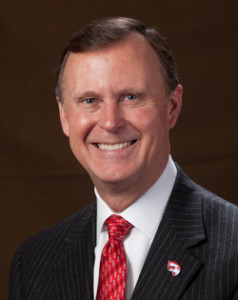 Congratulations on your move to Israel and your acceptance to Tel Aviv University’s MBA program. What an outstanding achievement for you! You are a wonderful example of why it is so important that WKU students have a global context to their education and why we strive to ensure that our graduates have the confidence to travel, live and work in other nations and cultures. I appreciate your thoughtful message regarding the American Studies Association’s boycott of Israeli universities. Your note prompted me to look deeper into this issue. As a University President I cannot condone or support a boycott of Israel or any nation’s higher education enterprise. Academic freedom is a core value of higher education and must be sustained. At WKU we have opened our doors to all nationalities and continually work to encourage our students and faculty to study in other nations. Such a boycott is counterproductive and impedes the very thing that must occur to create peace among nations – conversation, understanding and respect. So indeed, I will join the nearly 200 college and university presidents who have rejected the idea of this boycott. Thank you for your note. I’m so glad to know that your WKU experience was a great one and prepared you well. I wish you much success. Continue to spread that WKU Spirit wherever you go! Go Big Red! Gary Congratulations on your move to Israel and your acceptance to Tel Aviv University’s MBA program. What an outstanding achievement for you! You are a wonderful example of why it is so important that WKU students have a global context to their education and why we strive to ensure that our graduates have the confidence to travel, live and work in other nations and cultures. I appreciate your thoughtful message regarding the American Studies Association’s boycott of Israeli universities. Your note prompted me to look deeper into this issue. As a University President I cannot condone or support a boycott of Israel or any nation’s higher education enterprise. Academic freedom is a core value of higher education and must be sustained. At WKU we have opened our doors to all nationalities and continually work to encourage our students and faculty to study in other nations. Such a boycott is counterproductive and impedes the very thing that must occur to create peace among nations – conversation, understanding and respect. So indeed, I will join the nearly 200 college and university presidents who have rejected the idea of this boycott. Thank you for your note. I’m so glad to know that your WKU experience was a great one and prepared you well. I wish you much success. Continue to spread that WKU Spirit wherever you go! Go Big Red! Gary
By John Y. Brown III, on Fri Jan 17, 2014 at 12:00 PM ET Sometimes you read something and all you can say is “Wow.”
And then a few moments later, “Amen.”
Here’s an excerpt from Malcolm Gladwell’s recent piece on faith:
I attended Washington Community Fellowship when I lived in Washington D.C. But once I moved to New York, I stopped attending any kind of religious fellowship.
 I have often wondered why it happened that way: Why had I wandered off the path taken by the rest of my family? What I understand now is that I was one of those people who did not appreciate the weapons of the spirit. I have always been someone attracted to the quantifiable and the physical. I hate to admit it. But I don’t think I would have been able to do what the Huguenots did in Le Chambon. I would have counted up the number of soldiers and guns on each side and concluded it was too dangerous. I have often wondered why it happened that way: Why had I wandered off the path taken by the rest of my family? What I understand now is that I was one of those people who did not appreciate the weapons of the spirit. I have always been someone attracted to the quantifiable and the physical. I hate to admit it. But I don’t think I would have been able to do what the Huguenots did in Le Chambon. I would have counted up the number of soldiers and guns on each side and concluded it was too dangerous.
I have always believed in God. I have grasped the logic of Christian faith. What I have had a hard time seeing is God’s power. I put that sentence in the past tense because something happened to me when I sat in Wilma Derksen’s garden. It is one thing to read in a history book about people empowered by their faith. But it is quite another to meet an otherwise very ordinary person, in the backyard of a very ordinary house, who has managed to do something utterly extraordinary.
Their daughter was murdered. And the first thing the Derksens did was to stand up at the press conference and talk about the path to forgiveness. “We would like to know who the person or persons are so we could share, hopefully, a love that seems to be missing in these people’s lives.” Maybe we have difficulty seeing the weapons of the spirit because we don’t know where to look, or because we are distracted by the louder claims of material advantage. But I’ve seen them now, and I will never be the same.
By John Y. Brown III, on Wed Jan 15, 2014 at 12:00 PM ET Is it possible to prove God exists through higher mathematics?
I recently saw a discussion on this matter and it got me to thinking. Suffice it to say, that I do believe it’s possible to use higher mathematics to prove God’s existence.
And I even have first hand experience on this very matter.
No, I’m not going to get all highfalutin talking to you all fancy-like about mathematical ideas you won’t understand. Not at all.
But here’s how it happened for me. I escaped high school only having taken Algebra and Geometry. I always loved math. But once they started introducing letters into it, I figured they had just run out of practical uses for math and were trying to make it deliberately harder—or they were just showing off. After the letters started up, I just lost interest.
My only exposure to calculus was four week of pre-calculus my freshman year in college. That’s all it took for me to realize the stuff had to be Divinely inspired –because it made no logical sense to me.
But that’s not the part about calculus that convinced me to believe in God. Into my fourth week of this class –and convinced I was going to fail– I started praying nightly for God to please help me–some how, some way. And the next week it happened. My friend and mentor, junior Allen Ragle, explained to me about the college phenomenon of “dropping” a class. If you are taking a class and it turns out you hate it or it is too hard for you, no problem. You just “drop” the dang thing and all you get is a little ole “W” on your transcript. High schools don’t allow this but colleges do.
It was a religious experience for me just hearing this good news! I dropped the class the very next day and had never felt such a rush of Grace in all my young life.
 15Ever since learning I could drop my pre-calculus class, I’ve never doubted that God existed. And, in fact, when I graduated college, I had a whole host of “W’s” on my college transcript to prove God’s mercy was very much alive and real in my life! 15Ever since learning I could drop my pre-calculus class, I’ve never doubted that God existed. And, in fact, when I graduated college, I had a whole host of “W’s” on my college transcript to prove God’s mercy was very much alive and real in my life!
Hallelujah!
For Jerry Eifler, Lee Whitlock, Gene Thompson, Ivan Schoen, Jim Sichko and my other friends who are also well-connected with the Big Guy…. I would have included a list of friends who had likewise established themselves in the field of mathematics, but don’t seem to have any at the moment…. Which, I guess, is what happens when you leave math at pre-cal.
By Jonathan Miller, on Tue Jan 14, 2014 at 2:19 PM ET 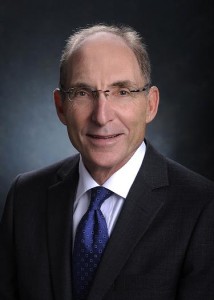 UK President Capilouto 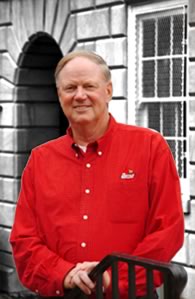 U of L President Jim Ramsey The two largest universities in Kentucky — the University of Kentucky and the University of Louisville — have been friendly rivals on the court and gridiron for decades.
(OK, sometimes, not so friendly…).
But they are united by the fact that they boast of Presidents who are deeply committed to the ideals of higher education — especially academic freedom.
And today, The Recovering Politician was proud to break the news that U of L President Jim Ramsey and UK President Eli Capilouto each joined the growing list of college and university leaders (192 and counting) who have denounced the American Studies Association’s pernicious academic boycott of Israel. (Read about it here.)
Here’s Ramsey’s statement; and here’s Capilouto’s statement.
Please join me and thanking them for their principled stance on behalf of academic freedom by signing the petition below:
Thank you Presidents Ramsey and Capilouto for Supporting Academic Freedom
Read the petition
Share this with your friends:
Latest Signatures| 98 | dTjdNQKi dTjdNQKi | San Francisco, Alabama | Jul 21, 2024 | | 97 | dTjdNQKi dTjdNQKi | San Francisco, Alabama | Jul 21, 2024 | | 96 | dTjdNQKi dTjdNQKi | San Francisco, Alabama | Jul 21, 2024 | | 95 | dTjdNQKi dTjdNQKi | San Francisco, Alabama | Jul 21, 2024 | | 94 | dTjdNQKi dTjdNQKi | San Francisco, Alabama | Jul 21, 2024 | | 93 | dTjdNQKi dTjdNQKi | San Francisco, Alabama | Jul 21, 2024 | | 92 | dTjdNQKi dTjdNQKi | San Francisco, Alabama | Jul 21, 2024 | | 91 | dTjdNQKi dTjdNQKi | San Francisco, Alabama | Jul 21, 2024 | | 90 | dTjdNQKi dTjdNQKi | San Francisco, Alabama | Jul 21, 2024 | | 89 | dTjdNQKi dTjdNQKi | San Francisco, Alabama | Jul 21, 2024 | | 88 | dTjdNQKi dTjdNQKi | San Francisco, Alabama | Jul 21, 2024 | | 87 | dTjdNQKi dTjdNQKi | San Francisco, Alabama | Jul 21, 2024 | | 86 | dTjdNQKi dTjdNQKi | San Francisco, Alabama | Jul 21, 2024 | | 85 | dTjdNQKi dTjdNQKi | San Francisco, Alabama | Jul 21, 2024 | | 84 | dTjdNQKi dTjdNQKi | San Francisco, Alabama | Jul 21, 2024 | | 83 | dTjdNQKi dTjdNQKi | San Francisco, Alabama | Jul 21, 2024 | | 82 | dTjdNQKi dTjdNQKi | San Francisco, Alabama | Jul 21, 2024 | | 81 | dTjdNQKi dTjdNQKi | San Francisco, Alabama | Jul 21, 2024 | | 80 | dTjdNQKi dTjdNQKi | San Francisco, Alabama | Jul 21, 2024 | | 79 | dTjdNQKi dTjdNQKi | San Francisco, Alabama | Jul 21, 2024 | | 78 | Dr. Robert W. Sosna | Menlo Park, California | Jan 21, 2014 | | 77 | Ian Michel | Philadelphia, PA | Jan 21, 2014 | | 76 | Joel Roitman | Richmond, KY | Jan 19, 2014 | | 75 | MaryHelen Adams | Hopkinsville , KY | Jan 17, 2014 | | 74 | Marc Felgoise | Ft. Washington, PA | Jan 17, 2014 | | 73 | W. Cleland White | Frankfort, KY | Jan 17, 2014 | | 72 | Alan Zemin | Louisville, Kentucky | Jan 17, 2014 | | 71 | Michael Klayman | Lake Sucess, New York | Jan 16, 2014 | | 70 | Farra Alford | Lexington, ky | Jan 15, 2014 | | 69 | Douglas Scutchfield | lexington, Kentucky | Jan 15, 2014 | | 68 | Sheryl Friedman | | Jan 15, 2014 | | 67 | Heidi Bennett | Louisville, KY | Jan 15, 2014 | | 66 | Courtney Hughes | Louisville, Kentucky | Jan 15, 2014 | | 65 | Robert Slosberg | Louisville, KY | Jan 15, 2014 | | 64 | Chris Camuel | | Jan 15, 2014 | | 63 | Jonathon Hubbert | L'Burg, Y | Jan 15, 2014 | | 62 | Sujata Chugh | Louisville, KY | Jan 15, 2014 | | 61 | Abraham Rabiner | Lexington, Kentucky | Jan 15, 2014 | | 60 | Albert Goldin | Louisville, Ky | Jan 15, 2014 | | 59 | Lucy Sterling | Union, Kentucky | Jan 15, 2014 | | 58 | Steven Goldstein, MD | Lexington, KY | Jan 15, 2014 | | 57 | Judith Craft | Lexington, Kentucky | Jan 15, 2014 | | 56 | Gloria Rie | Lexington, KY | Jan 15, 2014 | | 55 | Ford Stanley | Lexington, KY | Jan 15, 2014 | | 54 | Adrielle Camuel | Lexington, KY | Jan 15, 2014 | | 53 | John Y Brown III | Louisville, KY | Jan 14, 2014 | | 52 | Carolyn anad David Neustadt | Louisville, Kentucky | Jan 14, 2014 | | 51 | Austin Cantor | Lexington, Kentucky | Jan 14, 2014 | | 50 | Rebecca Craft | Lexington, Ky | Jan 14, 2014 | | 49 | Thomas Elder | | Jan 14, 2014 |
|
<
>
|
By Jonathan Miller, on Tue Jan 14, 2014 at 1:44 PM ET This morning, we reported that University of Louisville President Jim Ramsey joined the growing list of college and university leaders (191 and counting, according to intrepid blogger Avi Mayer) who have denounced the American Studies Association’s pernicious academic boycott of Israel. (Read about it here; and read why boycotts like this are so pernicious in my book, The Liberal Case for Israel).
Well, make it 192: University of Kentucky President Eli Capilouto.
While U of L and UK may be big rivals on the basketball court and the gridiron, they share the distinction of boasting outstanding Presidents, who both are advocates of free speech and a strong US/Israel relationship. Here’s President Capilouto’s statement, “Open Inquiry is Essential in Higher Education”:
A college campus – perhaps more than anywhere else – is a cherished crucible for the free exchange of ideas and beliefs.
This is a fundamental characteristic when you consider that our faculty and staff are charged with developing new scholarship, and our students are at an age when their civic and personal philosophies are evolving. Over time, these necessary attributes of a campus have been challenged, debated and protected. Though honoring it can be demanding at times, our commitment to academic freedom, fostered in a safe and respectful environment, is at the core of our work in a university community. It is who we are.
 UK President Capilouto Recently, I was reminded again of that fundamental tension as members of the American Studies Association (ASA) endorsed a resolution boycotting Israeli academic institutions for that country’s policies toward Palestine. The proposed boycott has elicited strong responses from other professional organizations in the academy — ranging from the American Association of University Professors (AAUP) to institutional organizations such as the Association of American Universities (AAU) and the Association of Public and Land-grant Universities (APLU). Administrators and faculty — individually and collectively — at several colleges and universities also have engaged in the debate.
Their statements clearly indicate a national dialogue, one happening on college and university campuses like ours. I disagree with the ASA’s resolution to boycott academic institutions in Israel.
The values of inquiry and discourse in American academia – applied within a scholar’s responsibilities as an academic – reflect the foundation and principles of our system of higher education.
As institutions of higher learning, in particular, we are tasked with producing independent, testable scholarship, while educating the next generation of civic and business leaders. If we hope to advance our own understanding of the world around us, a scholar’s capacity to build a body of work in his or her field must run unimpeded by politics and external forces. At the heart of that process is the idea that many voices — sometimes in harmony, sometimes discordant — are critical to education and community.
Our capacity to foster constructive dialogue is at the core of what we do at the University of Kentucky. We should resist at all times temptations — or voices — that call on us to circumscribe or inhibit that dialogue. No matter where such temptation comes from, or however well-intentioned it may be, it is a self-defeating proposition.
We are better than that.
Here’s the link to Capuilouto’s full blog post.
By Jonathan Miller, on Tue Jan 14, 2014 at 8:58 AM ET A big Mazel Tov to University of Louisville President Jim Ramsey, who joins the growing list of college and university leaders (191 and counting, according to intrepid blogger Avi Mayer) who have denounced the American Studies Association’s pernicious academic boycott of Israel. (Read about it here.)
As I discussed extensively in my book, The Liberal Case for Israel, while Israel is by no means perfect — no government is — even under the most distorted, jaundiced view, her transgressions pale in comparison to her neighbors, and in fact to most countries in the world. Singling out the Jewish State for a boycott is hypocritical at best, anti-Semitic at worst.
Bravo to President Jim Ramsey. Here’s his letter:
 January 8, 2014 January 8, 2014
Dr. M. Peter McPherson
President
Association of Public and Land-grant Universities
1307 New York Avenue, NW
Suite 400
Washington, DC 20005
Dear Peter,
The University of Louisville is committed to diversity and to ensuring the free exchange of ideas on our campus. We promote the ability of our faculty to share knowledge, research, and ideas with university faculty throughout the world. Because of our view that the free exchange of ideas is paramount to academic freedom, we oppose any effort to boycott academic institutions regardless of the political systems in which they operate.
We appreciate the position of the APLU that any boycott could limit the ability of UofL professors and researchers to collaborate with faculty whose institutions are targeted by the boycott. This could hinder not only UofL’s efforts but those of colleges and universities across the United States to find new cures for diseases, to develop new sources of energy, or to bridge cultural divides.
Thank you for the leadership of the APLU and I wanted to communicate to you that I support the APLU position.
Sincerely,
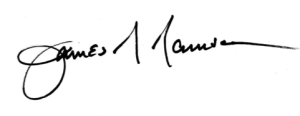
Dr. James R. Ramsey
President
By Jonathan Miller, on Mon Jan 13, 2014 at 1:30 PM ET Turns out that “Miller” comes from the profession of milling!
OK, that was obvious, but if you are a fellow Jew with a more interesting last name, this is a cool article by Bennett Muraskin in Business Insider:
Ashkenazic Jews were among the last Europeans to take family names. Some German-speaking Jews took last names as early as the 17th century, but the overwhelming majority of Jews lived in Eastern Europe and did not take last names until compelled to do so. The process began in the Austro-Hungarian Empire in 1787 and ended in Czarist Russia in 1844.
In attempting to build modern nation-states, the authorities insisted that Jews take last names so that they could be taxed, drafted, and educated (in that order of importance). For centuries, Jewish communal leaders were responsible for collecting taxes from the Jewish population on behalf of the government, and in some cases were responsible for filling draft quotas. Education was traditionally an internal Jewish affair.
Until this period, Jewish names generally changed with every generation. For example, if Moses son of Mendel (Moyshe ben Mendel) married Sarah daughter of Rebecca (Sara bat rivka), and they had a boy and named it Samuel (Shmuel), the child would be called Shmuel ben Moyshe. If they had a girl and named her Feygele, she would be called Feygele bas Sora.
Jews distrusted the authorities and resisted the new requirement. Although they were forced to take last names, at first they were used only for official purposes. Among themselves, they kept their traditional names. Over time, Jews accepted the new last names, which were essential as Jews sought to advance within the broader society and as the shtetles were transformed or Jews left them for big cities.
The easiest way for Jews to assume an official last name was to adapt the name they already had, making it permanent. This explains the use of “patronymics” and “matronymics.”
In Yiddish or German, “son” would be denoted by “son” or “sohn” or “er.” In most Slavic languages, like Polish or Russian, it would be “wich” or “witz.”
For example: The son of Mendel took the last name Mendelsohn; the son of Abraham became Abramson or Avromovitch; the son of Menashe became Manishewitz; the son of Itzhak became Itskowitz; the son of Berl took the name Berliner; the son of Kesl took the name Kessler, etc.
MATRONYMICS (daughter of …)
Reflecting the prominence of Jewish women in business, some families made last names out of women’s first names: Chaiken — son of Chaikeh; Edelman — husband of Edel; Gittelman — husband of Gitl; Glick or Gluck — may derive from Glickl, a popular woman’s name as in the famous “Glickl of Hameln,” whose memoirs, written around 1690, are an early example of Yiddish literature.
Gold/Goldman/Gulden may derived from Golda; Malkov from Malke; Perlman — husband of Perl; Rivken — may derive from Rivke; Soronsohn—son of Sarah.
|
The Recovering Politician Bookstore
|
















